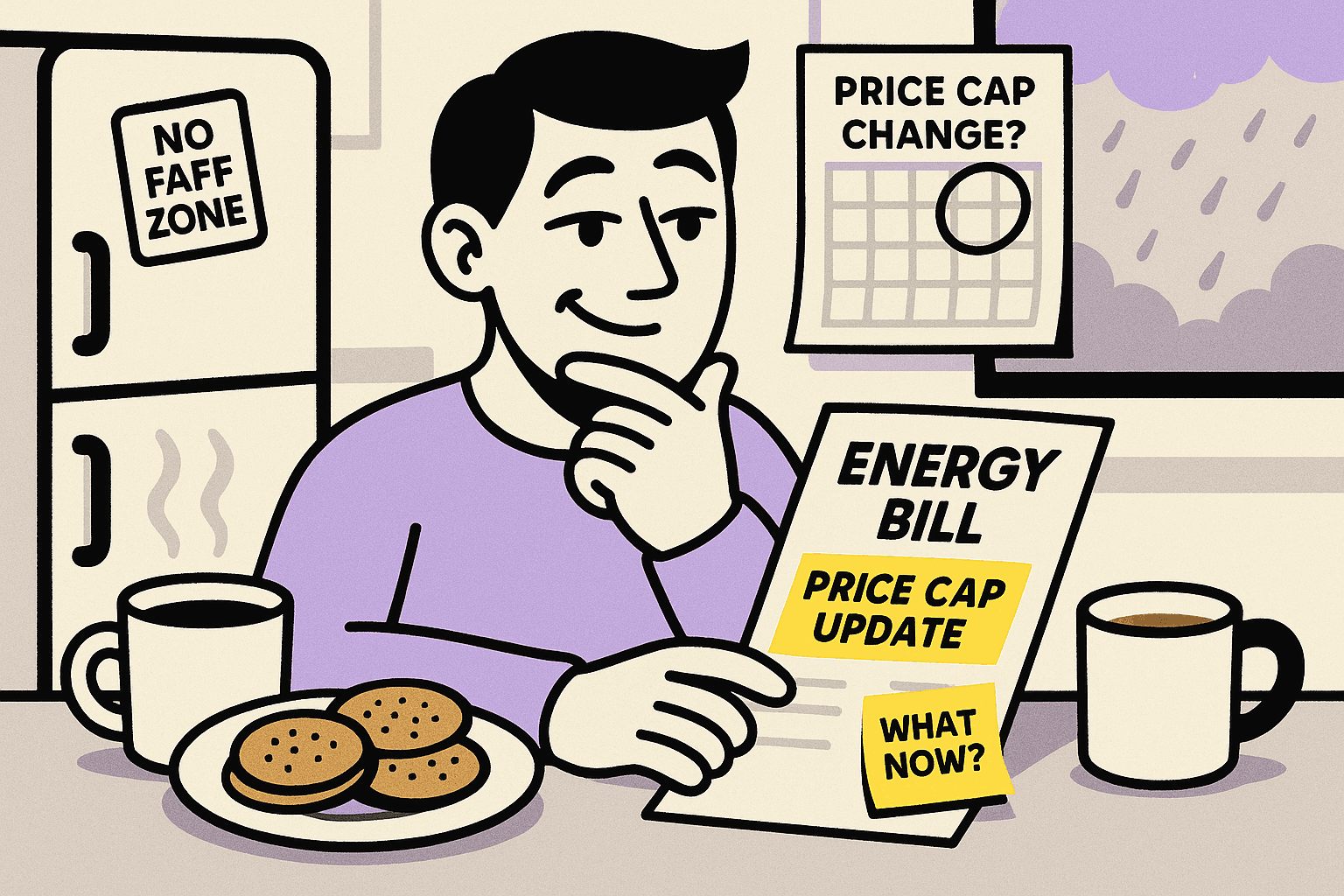Energy Price Cap Changes - What Does This Mean for Me?
If you’ve ever tried to keep up with energy price cap announcements, you’ll know it’s a bit like following the plot of Murder She Wrote, but not always clear what it means for your day-to-day life. So, let’s cut through the noise and get to the bit you actually care about: what does a change in the energy price cap mean for you and your bills?
What Is the Energy Price Cap?
The energy price cap is a limit set by Ofgem (the UK energy regulator) on how much suppliers can charge you for each unit of gas and electricity if you’re on a standard variable tariff. It’s designed to make sure you’re not paying over the odds, especially if you haven’t switched tariff in a while.
But, and it’s a big but, the cap doesn’t mean your bill can’t go up, it just limits the price per unit, not your total bill. So, if you use more energy, you’ll still pay more.
Why Does the Price Cap Change?
The cap gets reviewed every three months, and it moves up or down depending on what’s happening in the wholesale energy markets (the price suppliers pay for the energy before it gets to your home). If wholesale prices go up, the cap usually follows. If they fall, the cap should come down too.
What Does a Change Mean for My Bill?
- If the cap goes up: Your unit rates and standing charges will likely increase, so your bills could rise-even if you’re not using more energy.
- If the cap goes down: You should see a bit of relief on your bills, but don’t expect a windfall. It’s more “a round at the pub” than “holiday in the sun” money.
Remember, the cap only applies if you’re on a standard variable tariff. If you’re on a fixed deal, your rates stay the same until your deal ends.
Can I Do Anything About It?
Absolutely. You’re not stuck watching your bills go up and down like a yo-yo! Here’s what you can do:
- Shop around: Fixed tariffs can sometimes offer better value, especially if you like a bit of certainty.
- Use less energy: The old classics-turning down the thermostat, shorter showers, switching off lights-still work.
- Get clever with your usage: If you can shift some of your energy use to off-peak times (especially with a time of use tariff), you’ll pay less per unit.
- Consider home energy storage: A Vimma battery lets you buy and store cheaper off-peak electricity, so you’re less exposed to price hikes during peak times.
The Bottom Line
Energy price cap changes can feel a bit out of your hands, but you’ve got more control than you think. With a few smart moves (and maybe a Vimma battery), you can keep your bills in check and spend your savings on things that actually make life fun.
